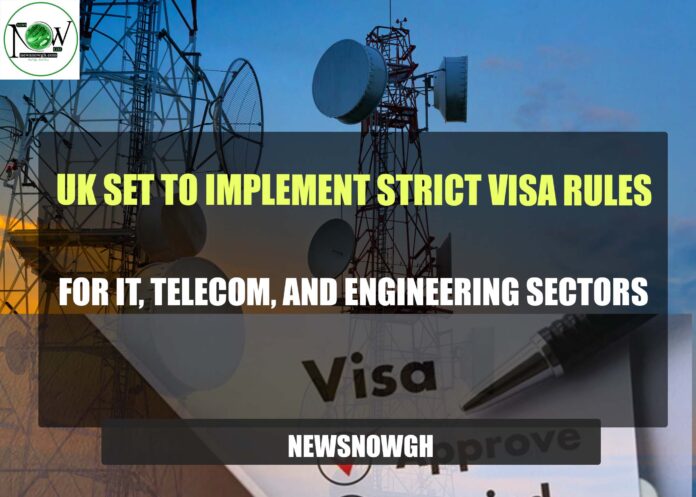UK Set to Implement Strict Visa Rules for IT, Telecom, and Engineering Sectors
Under the direction of Prime Minister Keir Starmer, the UK government is investigating alterations to visa regulations that may restrict the recruitment of foreign experts in critical fields such as engineering, IT, and telecommunications. Indian professionals, who are among the most frequent users of skilled worker visas, may be greatly impacted by these developments.
Under the direction of Prime Minister Keir Starmer, the United Kingdom (UK) is thinking of making big changes to its visa regulations and guidelines that might have a big impact on foreign workers, especially those from India.
The information technology, telecommunications, and engineering sectors—which have been among the top users of skilled worker visas—are anticipated to be impacted by the proposed changes to visa regulations.
Future Amendments to Visa Regulations
To lessen its reliance on foreign labor in key industries, the UK government is thinking of changing a number of its visa regulations. These modifications could consist of:
- Increasing the minimum income requirement would force applicants to provide proof of a greater income level to be granted a work visa.
- Limits based on various British regions: To solve localized talent shortages, the government may impose harsher visa restrictions for particular UK locations.
- The influx of qualified workers from nations like India, who have historically filled positions in these in-demand industries, might be greatly impacted by these actions.
Evaluation of Dependency on Skilled Worker Visas
In a recent development, British Home Secretary Yvette Cooper wrote to Brian Bell, the Chair of the Migration Advisory Committee (MAC), requesting a thorough examination of the reliance on skilled worker visas in the engineering, technology, and telecommunications sectors.
According to Cooper, “These industries rank among the top 10 in terms of dependency on foreign hiring, and the government is trying to figure out why.” She emphasized that the high percentage of hiring from outside the UK suggests that there are ongoing skill shortages in the country’s workforce.
Government’s Worries and Upcoming Plans
To encourage the IT, telecom, and engineering sectors to prioritize recruiting domestically, Home Secretary Yvette Cooper urged for adjustments to regulation. She underlined the need to lessen dependency on foreign labor and hinted that the country might not be adequately served by the current immigration system. The nine months are up to the Migration Advisory Committee (MAC) to offer suggestions.
Income Rule for UK Family Visas Is Not Changing
In a related move, the British government recently declined to raise the income requirement for citizens and permanent residents of the UK who wish to bring their family members to the country. As of right now, the annual need is GBP 29,000.
Home Secretary Cooper told the Commons that until the MAC finished a comprehensive analysis of the possible effects on families, there would be no more hikes. Cooper stated, “The family immigration laws, including the minimum income requirement, need to strike a balance between preserving the UK’s economic stability and respect for family life.”
Conclusion
The government’s intention to solve domestic labor shortages and make sure the immigration system is in line with the nation’s larger economic objectives is reflected in these proposed modifications to the UK visa regulations. Aspiring professionals should be aware of these trends, as they may affect their future employment opportunities in the UK, especially those from India.
Follow us on Newsnowgh.com to stay updated on the latest information regarding work permits, visa application processes, paths to permanent residency, and visa-sponsored employment.


